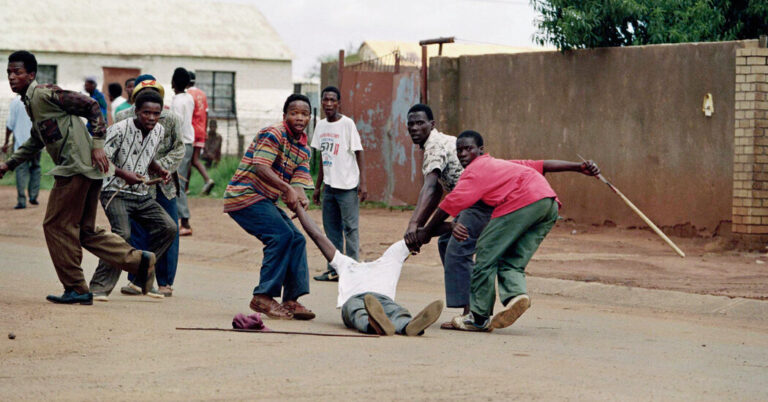Thirty years ago, Black South Africans voted for the first time as the country celebrated the monumental birth of a democracy. As I write this, South Africa is bathed in warm winter sunlight and South Africans are free.
That day, April 27, 1994, changed the lives of everyone in the country. I was there. But I can only vaguely remember it.
I do, however, vividly remember the cost in human lives that led to that victorious day, as what amounted to a proxy war fueled by elements of the apartheid state pitted ethnic groups against one another. Those who hoped the bloodshed would derail democratic negotiations conveniently called it Black-on-Black violence.
Four years passed between Nelson Mandela’s release from prison and that first real election. In that time, as the apartheid government slowly settled the terms of its dissolution with political leaders it had long sought to suppress, 14,000 people died violently.
Many South Africans have perhaps chosen to forget. Younger ones may simply not know. But here is what I saw in the months before the vote.
Whole neighborhoods were abandoned as people fled their homes. Nameless corpses littered the empty streets for hours before the morgue wagons would collect them, on display on unpaved roads as a warning for all to see.
Nine days before the elections, the country was burning. It was a last push between warring factions. The Inkatha Freedom Party — a powerful Zulu political and cultural movement — was preparing to boycott the vote, saying the new settlement gave too little power to territories like KwaZulu, where it had long ruled. The bodies piled up.
On that day, April 18, 1994, I found myself in Khumalo Street in Thokoza, a Black township east of Johannesburg.
To my left lay Ken Oosterbroek, mortally wounded, while to my right, Greg Marinovich clutched at his chest, holding on for dear life. Friends and fellow photographers who had dedicated their careers to documenting the violent, dying throes of apartheid lay dead and wounded.
From 1990 to 1994, close to 700 people died in Thokoza, and hundreds in that very street. It was one among many. Today, a memorial on Khumalo Street bears the names of the dead, Ken’s included.
When I visited the monument in late 2016, it was serving as shelter to homeless people, who slept next to the inscribed marble wall. It has since been rehabilitated by former members of the Self-Defense Units, residents — predominantly supporters of Mr. Mandela’s African National Congress — who defended their communities against Inkatha Freedom Party supporters.
Macdonald Mabizela, 48, who was then a teenage fighter and is now a caretaker, explained how they had chased away the vagrants, cleaned up the memorial and rebuilt part of the perimeter wall that had collapsed after someone drove into it.
Nelson Mandela addressed the nation that night, calling for calm and for an end to the bloodshed — a presidential act before becoming president. Shortly afterward, the Inkatha Freedom Party announced that it would be participating in the election. The ballots had been printed without a slot for the party. Decals were quickly added. It was stark evidence of how close South Africa had come to a civil war.
South Africans voted, and it was a peaceful day, that much I remember. I documented it, and what should have been a life-changing experience was lost on me. I had just buried a friend, and another was recovering from three gunshot wounds. I voted in Katlehong, a mere six-minute drive from where Ken was killed, shipped my film back to The Associated Press’s office and went to sit at Greg’s side. Two days of voting went by in a blur, with me barely present.
South Africans will vote again this week, in a national election less predictable than any since 1994. It is important to remember the past at times such as these and to honor those who paid the ultimate price as political figures negotiated their way to power and democracy.



